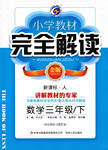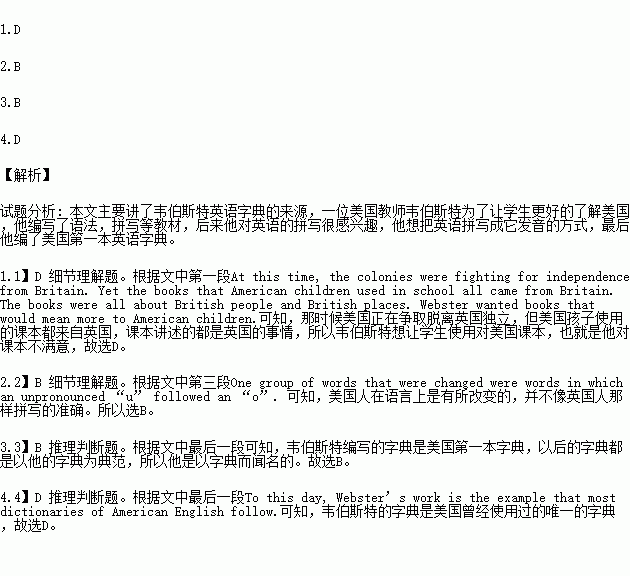题目内容
As a young adult, Noah Webster was a teacher. At this time, the colonies were fighting for independence from Britain. Yet the books that American children used in school all came from Britain. The books were all about British people and British places. Webster wanted books that would mean more to American children. So he wrote three books that used American examples — a grammar book, a spelling book, and a reader. These books were very popular, and millions of them were sold.
Webster was interested in changing the spellings of words. He wanted words to be spelled the way they were pronounced. For example, he thought the word “head” should be spelled “hed”, and the word “laugh” should be spelled “laf”. People liked Webster’s suggestions.
However, few words were actually changed. One group of words that were changed were words in which an unpronounced “u” followed an “o”. That is why Americans write “color” and “labor”, and the British write “colour” and “labour”.
With the money he made from his books, Webster was able to write. It was the first American English dictionary, published in 1828. Webster’s dictionary had over 70000 words and gave the meaning and origin of each. To this day, Webster’s work is the example that most dictionaries of American English follow.
1.Which of the following statements is right?
A. Noah Webster had to borrow books from Britain when he was a student.
B. Noah Webster had his own government when he was very young.
C. When Noah Webster taught at schools, he wrote some story books.
D. As a teacher, Noah Webster wasn’t satisfied with the books he used.
2.The third paragraph mainly tells us that ________.
A. Webster spoke English in a different way
B. American people didn’t write English as exactly as English people did
C. Webster was good at correcting mistakes in textbooks
D. American people didn’t like speaking English
3.In American history, Noah Webster is famous for ________.
A. his teaching methods
B. his dictionary
C. his fighting for freedom
D. learning foreign languages
4.The last sentence of this passage means ________.
A. most dictionaries in the world are the copies of Webster’s
B. most dictionaries in American English have the characteristics of Webster’s
C. most American people followed Webster’s advice on writing
D. Webster’s dictionary is the only one used in the United States
 小学教材完全解读系列答案
小学教材完全解读系列答案
